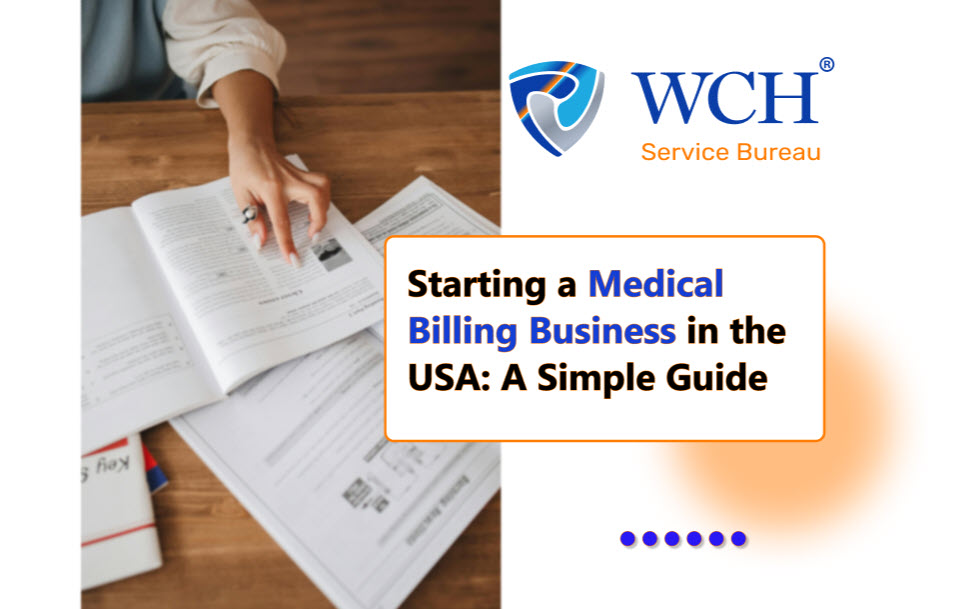
Launching a medical billing business in the USA can be a rewarding venture. It requires careful planning, compliance with regulations, and a solid understanding of the industry. Here’s an easy-to-read guide to help you get started.
1. Get Educated and Certified
Learn the Basics
To provide top-notch medical billing services, you need to understand medical coding, billing procedures, and healthcare regulations. Consider getting certified by:
- American Academy of Professional Coders (AAPC)
- American Health Information Management Association (AHIMA)
Certifications like Certified Professional Coder (CPC) or Certified Coding Specialist (CCS) boost your credibility.
Gain Experience
Work in a medical office, hospital, or billing company to gain hands-on experience. Practical insights from real-world settings are invaluable.
2. Plan Your Business
Create a Business Plan
Your business plan should outline:
- Goals and objectives
- Target market
- Services offered
- Marketing strategies
- Financial projections
This roadmap guides your business and attracts potential investors.
Choose a Business Structure
Decide on a legal structure:
- Sole Proprietorship
- Partnership
- Limited Liability Company (LLC)
- Corporation
Consult a legal or business advisor to choose the best option for your needs.
3. Legal and Regulatory Steps
Register Your Business
Register your business with state authorities. Choose a unique name and file the necessary paperwork.
Get an EIN
Apply for an Employer Identification Number (EIN) from the IRS. This number is needed for tax purposes and hiring employees.
Obtain Licenses and Permits
Check local and state requirements for licenses and permits. You might need a general business license and, if working from home, a home occupation permit.
Follow HIPAA Regulations
Ensure your business complies with HIPAA to protect patient information. Implement secure systems for handling and storing medical records.
4. Set Up Technology and Software
Invest in Medical Billing Software
Choose reliable billing software that streamlines the process and ensures accuracy. Popular options include:
- Kareo
- AdvancedMD
- NextGen Healthcare
Ensure Data Security
Protect patient information with strong data security measures like encryption, secure servers, and regular software updates.
5. Market Your Services
Build a Professional Website
Create a website showcasing your services, expertise, and contact information. A professional website enhances credibility and attracts clients.
Network with Healthcare Providers
Attend industry conferences, join professional associations, and network with healthcare providers to build relationships and market your services.
Offer Competitive Pricing and Great Customer Service
Research the market to set competitive prices. Focus on excellent customer service to build a strong reputation and retain clients.
6. Manage Finances
Open a Business Bank Account
Keep your personal and business finances separate by opening a business bank account. This simplifies accounting and tax reporting.
Use Accounting and Billing Systems
Implement accounting software to manage finances and track expenses, revenues, and profits. Ensure your billing system handles multiple clients and transactions efficiently.
Consider Liability Insurance
Get professional liability insurance (errors and omissions insurance) to protect your business from potential lawsuits related to billing errors.
7. Keep Learning and Adapting
Stay Updated
The medical billing industry evolves with changes in coding standards, insurance regulations, and healthcare laws. Attend workshops, webinars, and continue your education.
Embrace New Technology
Adopt new technologies and software updates to enhance billing process efficiency and accuracy.
Starting a medical billing business in the USA involves a mix of industry knowledge, careful planning, and adherence to regulations. By following these steps and continually improving your skills and services, you can build a successful and reputable medical billing business.
